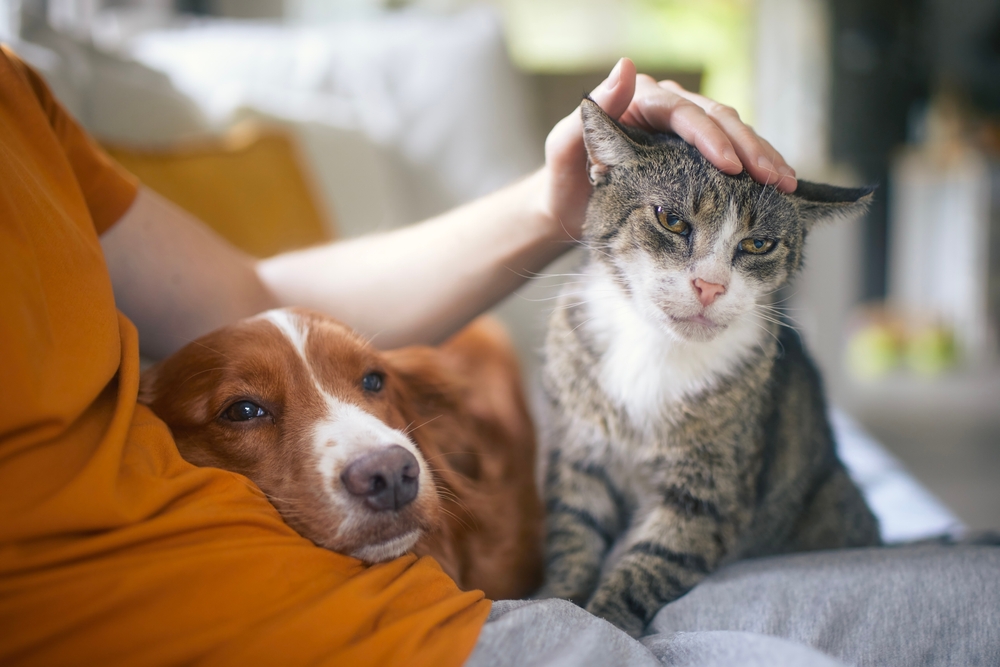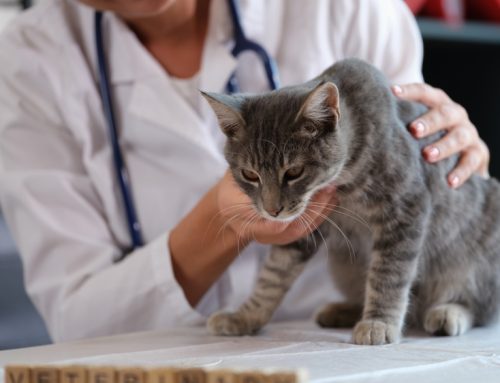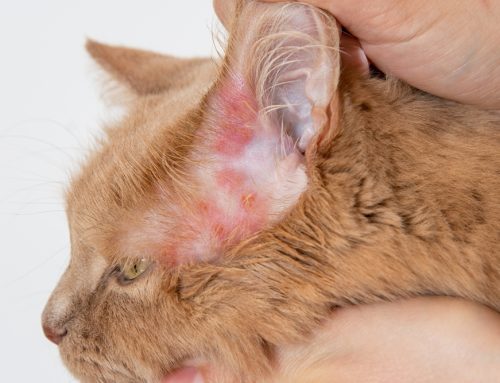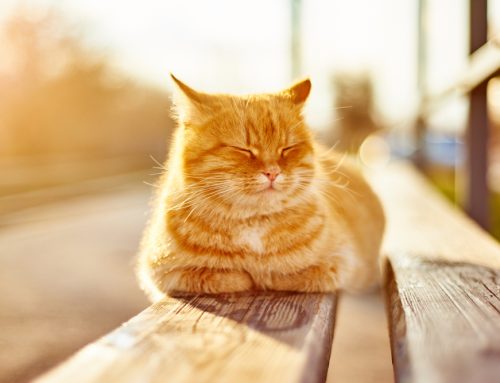We wish our pets could stay young forever, but aging is inevitable. However, the process doesn’t have to be unpleasant, because you can support your aging furry pal and make their golden years their best yet. Here are 10 easy ways to improve your senior pet’s quality of life.
#1: Keep your senior pet active
Older pets tend to be inactive because of arthritis pain, heart disease, respiratory issues, cognitive dysfunction, or a multitude of other conditions. Staying active isn’t always easy for senior pets, but it’s essential for their physical and mental health. They may no longer be able to run, jump, and play, but you can modify their activities to accommodate any health issues. Low-impact exercises and shorter, more frequent activity sessions can keep your senior pet comfortable and safe.
Modify your pet’s exercise sessions by:
- Rolling a ball along the floor instead of long throws outside
- Walking instead of running
- Hiking on level ground
- Swishing a feather wand along the floor instead of in the air
- Using physical rehabilitation techniques for play
#2: Customize your senior pet’s diet
While senior pet diets are generally designed to nutritionally support an aging pet, personalizing their diet can further boost their health. Ask our veterinarians about the best dietary changes for your senior pet, which may include switching to a prescription diet or adding a joint or organ supplement.
#3: Focus on a healthy body condition for your senior pet
Although senior pets are often more sedentary than when they were young, dedicate yourself to keeping your pet at an ideal body condition. Obese pets have an increased risk for developing diabetes, hypothyroidism, Cushing’s disease, skin and urinary infections, heart and respiratory problems, and some cancers. They also have shorter lifespans than pets at a healthy weight, so ensure your pet exercises and is fed an appropriate diet.
#4: Set aside time for daily dental care
Senior pets are more likely to develop oral conditions that negatively impact their appetite, so you must ensure their teeth and gums remain healthy and pain-free. Brush your pet’s teeth daily to reduce plaque and tartar accumulation, and offer dental chews, treats, and food and water additives to minimize oral bacteria. Regular veterinary dental cleanings will prevent periodontal disease which, left untreated, can lead to heart, kidney, and liver disease.
#5: Play brain games with your senior pet
Cognitive function declines with advancing age, so take steps now to preserve your pet’s mental sharpness. Play games that encourage them to use their brain, such as trick training, agility, scent work, and food puzzles.
#6: Make your home easy to navigate
Arthritis pain, vision loss, and cognitive dysfunction can negatively impact your senior pet’s mobility and ease in navigating your home. Ensure your pet’s resources (e.g., food, water, bed) are easily reached by modifying your home. Consider:
- Laying down carpet runners and rugs to provide traction on slippery floors
- Swapping out soft beds for firm orthopedic beds that cushion aching joints
- Brightening up dark hallways and rooms with nightlights
- Installing pet steps or ramps to prevent jumping and climbing
- Raising food and water bowls to a comfortable height
- Purchasing low-sided litter boxes
#7: Help your senior pet with hygiene
Senior pets can experience many health problems that cause urinary and fecal incontinence, diarrhea, constipation, or other elimination abnormalities. While younger pets can still clean themselves up after an accident, senior pets often lack the flexibility they need.
Help your senior pet stay clean by encouraging frequent bathroom visits, checking their bed for wetness or stool, using baby wipes as needed, and trimming long-haired pets for sanitary reasons. Regular brushing will prevent long fur from matting, which can turn into a “catch-all” for urine and feces if not properly groomed.
#8: Don’t ignore arthritis signs
Pet owners often chalk up their senior pet’s decreased activity to old age, but a declining desire to play and exercise is often caused by untreated arthritis pain. If you notice the following arthritis signs in your senior pet, schedule an appointment with our team:
- Stiffness
- Limping
- Difficulty getting up or lying down
- Reluctance to climb or jump
- Lethargy
- Irritability
- Excessive licking at joints
- Muscle atrophy
#9: Stick to your senior pet’s routine
Abrupt changes in your pet’s life can be unsettling at any time, but they can make senior pets much more anxious. Try to minimize sudden changes in your pet’s diet, schedule, family, and environment. If necessary, make gradual adjustments so your senior pet is eased into the new routine, which provides stability and comfort with familiar items, people, and places.
#10: Schedule more frequent wellness visits

After a lifetime of body wear and tear, older pets are at an increased risk for disease development, which means your pet’s health status can change rapidly and you should switch from annual to biannual or quarterly wellness visits. With more frequent wellness care, we can detect subtle changes in your pet’s health sooner, which allows us to more effectively manage early stage disease.
Older pets still have a lot of life and love left, and they can continue to experience an excellent quality of life with these few changes to their care. Give our Chiefland Animal Hospital team a call to schedule your senior pet’s semi-annual wellness visit.








Leave A Comment